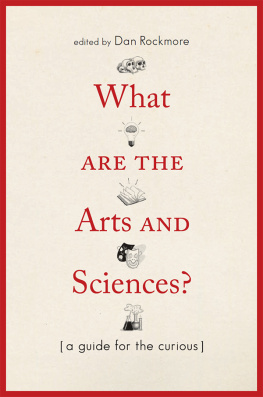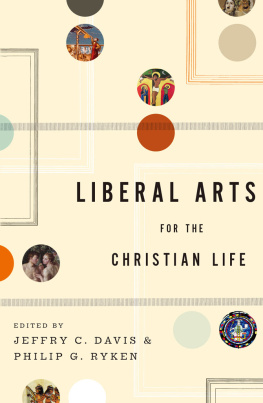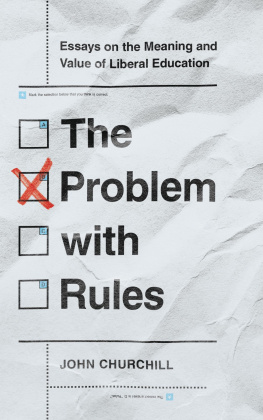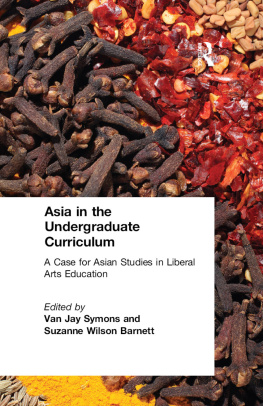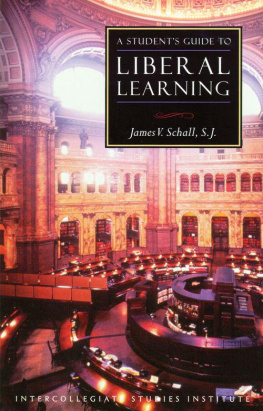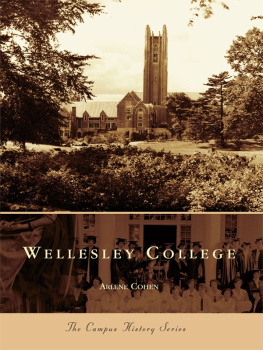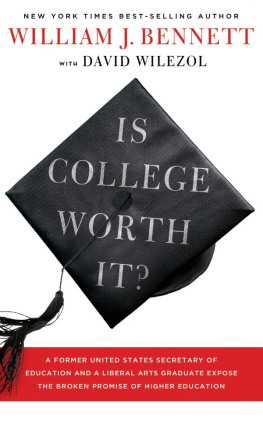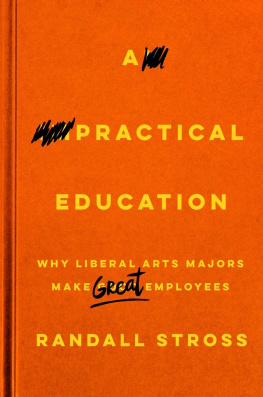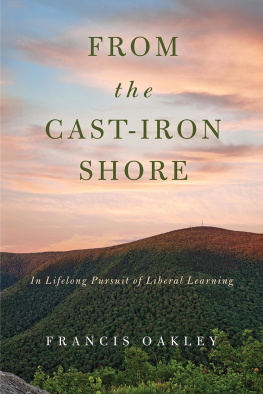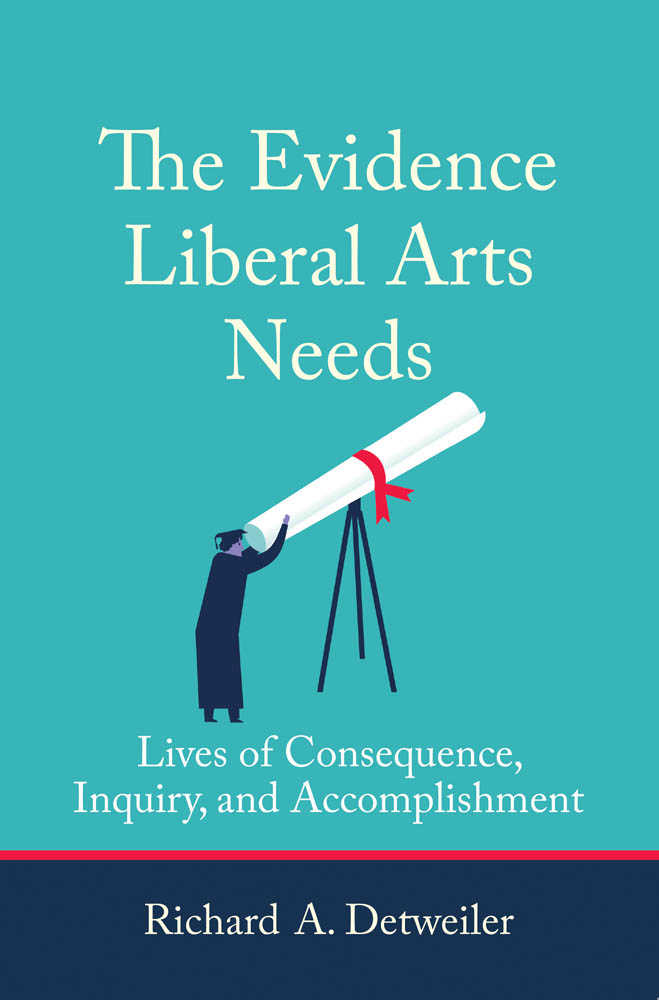Richard A. Detweiler - The Evidence Liberal Arts Needs: Lives of Consequence, Inquiry, and Accomplishment
Here you can read online Richard A. Detweiler - The Evidence Liberal Arts Needs: Lives of Consequence, Inquiry, and Accomplishment full text of the book (entire story) in english for free. Download pdf and epub, get meaning, cover and reviews about this ebook. year: 2021, publisher: MIT Press, genre: Romance novel. Description of the work, (preface) as well as reviews are available. Best literature library LitArk.com created for fans of good reading and offers a wide selection of genres:
Romance novel
Science fiction
Adventure
Detective
Science
History
Home and family
Prose
Art
Politics
Computer
Non-fiction
Religion
Business
Children
Humor
Choose a favorite category and find really read worthwhile books. Enjoy immersion in the world of imagination, feel the emotions of the characters or learn something new for yourself, make an fascinating discovery.

- Book:The Evidence Liberal Arts Needs: Lives of Consequence, Inquiry, and Accomplishment
- Author:
- Publisher:MIT Press
- Genre:
- Year:2021
- Rating:3 / 5
- Favourites:Add to favourites
- Your mark:
The Evidence Liberal Arts Needs: Lives of Consequence, Inquiry, and Accomplishment: summary, description and annotation
We offer to read an annotation, description, summary or preface (depends on what the author of the book "The Evidence Liberal Arts Needs: Lives of Consequence, Inquiry, and Accomplishment" wrote himself). If you haven't found the necessary information about the book — write in the comments, we will try to find it.
In ongoing debates over the value of a college education, the role of the liberal arts in higher education has been blamed by some for making college expensive, impractical, and even worthless. Defenders argue that liberal arts education makes society innovative, creative, and civic-minded. But these qualities are hard to quantify, and many critics of higher education call for courses of study to be strictly job-specific. In this groundbreaking book, Richard Detweiler, drawing on interviews with more than 1,000 college graduates aged 25 to 65, offers empirical evidence for the value of a liberal arts education. Detweiler finds that a liberal arts education has a lasting impact on success, leadership, altruism, learning, and fulfillment over a lifetime.
Unlike other defenders of a liberal arts education, Detweiler doesnt rely on philosophical arguments or anecdotes but on data. He developed a series of interview questions related to the content attributes of liberal arts (for example, course assignments and majors), the context attributes (out-of-class interaction with faculty and students, teaching methods, campus life), and the purpose attributes (adult life outcomes). Interview responses show that although both the content of study and the educational context are associated with significant life outcomes, the content of study has less relationship to positive adult life outcomes than the educational context. The implications of this research, Detweiler points out, range from the advantages of broadening areas of study to factors that could influence students decisions to attend certain colleges.
Richard A. Detweiler: author's other books
Who wrote The Evidence Liberal Arts Needs: Lives of Consequence, Inquiry, and Accomplishment? Find out the surname, the name of the author of the book and a list of all author's works by series.

